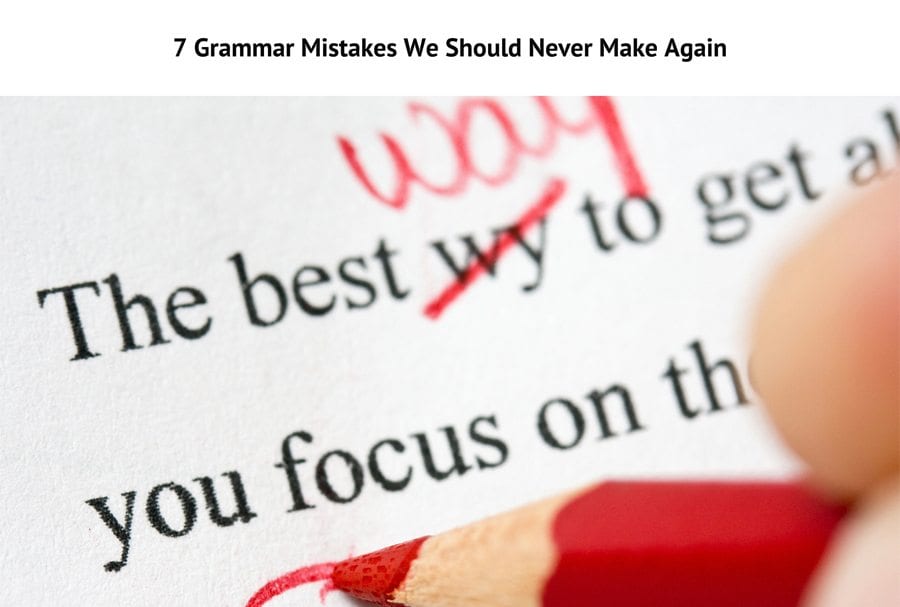Even after so many years spent in school, we still find it difficult to get our grammar right on paper. Most people write the way they speak, which leads to the most mistakes I’ve seen while editing someone else’s writing. What’s even harder is finding your mistakes in your own writing.
We’re all going to make grammar mistakes but we can try to do something to prevent them. Here’s a crash course on the most common grammar mistakes we make every day and how to not repeat them.
1. They’re vs. Their vs. There
They’re is a contraction for “they are.”
Ex: They’re running.
Their is a possessive pronoun that refers to something owned by a group.
Ex: Their car is in the shop.
There refers to a place.
Ex: We are going to Starbucks. We’re going there at 10am.
Make sure you are using the right ones in the right places.
2. Your vs. You’re
Your is a possessive pronoun in the case of “you” both singular and plural.
Ex: How’s your mom?
You’re is a contraction if you are.
Ex: You’re late.
3. Its vs. It’s
Its is a possessive pronoun in the case of “it.”
Ex: Its place is in the fridge.
It’s is a contraction of it is.
Ex: It’s a sunny day.
4. Passive vs Active Voice
Passive voice is when the object of the sentence appears at the beginning of the sentence as opposed to the end following a verb. Passive voice isn’t as clear as active voice.
Ex: Action the bill is being considered by the committee.
Active voice is more straight-forward and helps prevent sentences form getting too wordy and complicated.
Ex: The committee is considering action on the bill.
5. Affect vs. Effect
Affect is a verb used to talk about the act of changing.
Ex: The movie affected me greatly.
Effect is a noun used to talk about the change itself.
Ex: The movie had a great effect on me.
6. Alot vs. A lot vs. Allot
A lot refers to a vast number of things.
Ex: I bought a lot of things at the store.
Alot is a verb that refers to appropriating or portioning off something.
Ex: I alloted money towards shopping.
7. Into vs. In to
Into indicates movement.
Ex: I walked into the house.
In to is used as when in and to come from different parts of the sentence and happen to be next to each other.
Ex: I called in to a meeting.
Always make an effort to spell and use grammar correctly. It will benefit you in the long run and you won’t sound like as much of an idiot every time you send an email.






